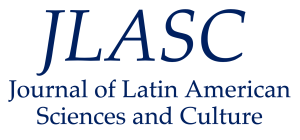Cambio climático en Filipinas
DOI:
https://doi.org/10.52428/27888991.v3i4.142Palabras clave:
Climate Change, Climate responsibility, Natural disastersResumen
Los impactos del cambio climático en Filipinasincluyen amenazas a la biodiversidad como la pérdida de coral,
la disminución de los rendimientos de arroz, sequías más intensas y
un mayor aumento del nivel del mar. Si bien existe un fuerte consenso
científico de que las emisiones de gases de efecto
invernadero causadas por el hombre están generando un cambio climático
que luego contribuye a tifones más fuertes, los filipinos tienen
poca responsabilidad por causar el cambio climático.
La lucha que enfrentan Filipinas, así como otros países en desarrollo,
es más que un problema ambiental, es un ejemplo de injusticia climática.
Descargas
Citas
Climate Change in the Philippines. (2021). https://www.pagasa.dost.gov.ph/information/climate-change-in-the-philippines
The Philippines is Third-Riskiest Country When it Comes to Natural Disasters. (2018). https://www.esquiremag.ph/life/travel/world-risk-index-2017-philippines-a00203-20180502
We have 12 years to limit climate change catastrophe, warns UN. (2018) https://www.theguardian.com/environment/2018/oct/08/global-warming-must-not-exceed-15c-warns-landmark-un-report
Descargas
Publicado
Cómo citar
Número
Sección
Licencia
Derechos de autor 2021 Journal of Latin American Sciences and Culture

Esta obra está bajo una licencia internacional Creative Commons Atribución 4.0.
Authors who publish in this journal agree to the following conditions: Authors retain copyright and grant the journal the right of first publication, with the work licensed under a Creative Commons Attribution 4.0 International License, which allows others to use the published work provided they acknowledge the authorship and initial publication in this journal. Authors may enter into separate, additional contractual agreements for the non-exclusive distribution of the version of the article published in this journal (e.g., posting it to an institutional repository or publishing it in a book), provided they clearly indicate that the work was first published in this journal. Authors are permitted and encouraged to share their work online (e.g., in institutional repositories or on personal websites) before and during the manuscript submission process, as this can lead to productive exchanges and increased and faster citation of the published work.









